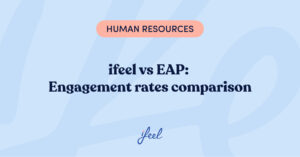The 4-day work week is a revolutionary model that promises substantial positive productivity and changes in employee satisfaction. As the UK embraces this innovative approach, it’s crucial to understand its benefits, especially regarding work-life balance. This article explores the potential advantages of a 4 day work week, focusing on its impact on work-life balance and a broader perspective on its implementation across the UK.
The Benefits of a 4 day work week
The transition to a 4 day work week offers numerous advantages:
1. Enhanced employee well-being: Shortened workweeks have been linked to reduced stress and improved mental health. Employees experience higher job satisfaction, which can translate into increased retention rates.
2. Boosted productivity: Contrary to traditional expectations, companies in the UK have observed sustained or even enhanced productivity levels, as shorter workweeks lead to more focused and efficient work. Studies show that more than two-thirds of employees reported lower levels of ‘burnout’ since implementing the 4 day work week.
3. Reduced absenteeism: Employees can better manage personal obligations with more personal time, leading to fewer unscheduled absences and a more reliable workforce.
4. Cost savings: Businesses can benefit from reduced operating costs, such as lower utility bills, as fewer hours in the office translate into less resource usage.
Iceland: A pioneer in the 4 day work week
Iceland has emerged as a leader in implementing the 4 day work week, demonstrating the viability and advantages of this innovative model on a global stage. Between 2015 and 2019, Iceland conducted pioneering trials across the public sector, involving over 2,500 employees, a significant portion of its working population. These extensive experiments have provided valuable insights into the impact of reduced working hours on productivity, employee satisfaction, and overall workplace well-being.
The trials in Iceland were designed to explore the effects of a shorter workweek without a reduction in pay. These experiments were unique in their scale and scope, encompassing diverse sectors including education, healthcare, and local government services. The primary aim was to assess whether a reduction in work hours could enhance productivity and improve employee well-being.
Iceland’s successful implementation of the 4 day work week has positioned the country as a model for others seeking to explore shortened workweeks. The trials have fueled discussions globally about the potential for widespread adoption of this model, particularly in contexts where work-life balance and employee well-being are prioritised.
Work-life balance: A crucial component
The 4 day work week fundamentally shifts the work-life balance paradigm, providing employees with more time to focus on personal pursuits and family life. Here’s a detailed look at how this balance is achieved and its benefits:
| Benefit | Description |
|---|---|
| Quality family time | An additional day off each week allows employees to spend more time with their families, strengthening bonds and reducing household stress. Shared activities foster stronger family connections, positively impacting community ties and personal development. |
| Opportunity for personal growth | With an extra day, employees can pursue hobbies, further education, or volunteer work, enhancing personal fulfillment and skill development. This improves individual happiness and enriches the workplace with new skills and perspectives. |
| Health and well-being | More leisure time enables healthier lifestyles, including regular exercise, healthier meals, and adequate rest. This focus on well-being can reduce healthcare costs for employers and lower stress-related health issues among employees. |
| Reduction of burnout | An additional day off reduces the risk of burnout by providing extended breaks from work-related stress. Employees return to work with renewed energy and focus, leading to higher productivity and job satisfaction. |
| Flexibility in daily life | A 4-day workweek allows employees to manage personal errands and appointments without taking time off work. This flexibility enhances control over one’s life, supporting mental well-being. |

The UK’s embrace of the 4 day work week
In the UK, the idea of a 4 day work week is gaining acceptance across various industries. Several companies and organisations have started to pilot this model, revealing encouraging results:
Diverse industries: From tech startups to financial services, various UK companies are exploring the 4 day work week. These pilots often desire to attract and retain top talent by offering a more appealing work-life balance.
Positive outcomes: Reports from participating companies highlight improvements in employee morale and productivity. Managers note that teams are more focused and collaborative, often achieving their goals in less time than expected.
Academic insights: Research institutions in the UK are studying the effects of the 4 day work week on the economy and workforce dynamics, providing data-driven insights that inform future policies and corporate strategies.
Government interest: The UK government has shown interest in understanding the broader implications of a reduced workweek, considering its potential to boost productivity and employee well-being on a national scale.
Public support: There is growing public support for the 4 day work week in the UK, with workers expressing a strong preference for increased flexibility and a balance between professional and personal life.
The Leadership Lens🔎
For leaders in the UK considering a shift to a 4 day work week, several strategic considerations are essential. Embracing a results-driven culture where the focus is on output rather than the number of hours worked is necessary for successful implementation.
Transparent communication with employees about the transition process and its anticipated benefits is crucial to ensure buy-in and alignment. Additionally, investing in technology and infrastructure that supports remote work and efficient communication can facilitate a seamless transition to a reduced workweek. These elements together create a foundation for a smooth and effective adoption of this innovative work model.
Trust the leaders in mental well-being
At ifeel, we understand that transitioning to a 4 day work week is more than just a policy change, it’s a strategic opportunity to enhance workforce well-being.
To assist in this process, our team of psychologists specialising in mental well-being has developed a mental well-being program for companies aimed at helping companies enhance employee engagement and boost productivity.
This collaboration allows HR managers to receive personalised, data-based advice on the most effective measures for detecting employee mental health issues and assessing the workplace climate. It’s the best way to understand their needs.
Moreover, ifeel’s corporate mental well-being solution offers employees a structured mental health care service tailored to their needs at any given time.
We hope you found this article on the 4 day work week interesting. If you want more information about our mental well-being solution for companies, simply request it, and we will contact your team soon.







